Having experienced the devastating loss of two special-needs children, the Hopkins family has set out to eliminate the stigma surrounding marijuana and bring to light its potential medical benefits.
“Marijuana? You’re going to give that to your children?” Kelli Hopkins remembered the reaction she and husband Mike often got from friends and family when they first heard they were pursuing medical marijuana treatment for their special-needs children. “They didn’t hear the ‘medical’ part,” Kelli said. Getting others to look beyond the stigma of marijuana and see its potential benefits has been a learning experience turned crusade for the Hopkins family.
The longtime Covington residents represent just one of the many families in Georgia who have been engaged in a long, uphill battle to make medical marijuana—or cannabis—legal in the state. In 2014, Gov. Nathan Deal took the first step by signing into law a bill that essentially made medical marijuana legal to possess but, given current federal statutes, made no provision for a legal way to obtain it. With Gov. Brian Kemp’s signing of House Bill 324 on April 17, it appears the remaining legal hurdles preventing qualified medical patients from receiving the controversial drug have been removed.
The new law lays out strict guidelines for the growing and distribution of medical cannabis. Recipients of the medication will have been screened and approved by the Georgia Department of Public Health. Currently, there are more than 9,500 registered medical marijuana patients in the state with qualifying diseases and disorders such as Parkinson’s, multiple sclerosis, AIDS, cancer, seizures and others. Many have found medical marijuana to be the most—and often only—effective treatment for symptoms.
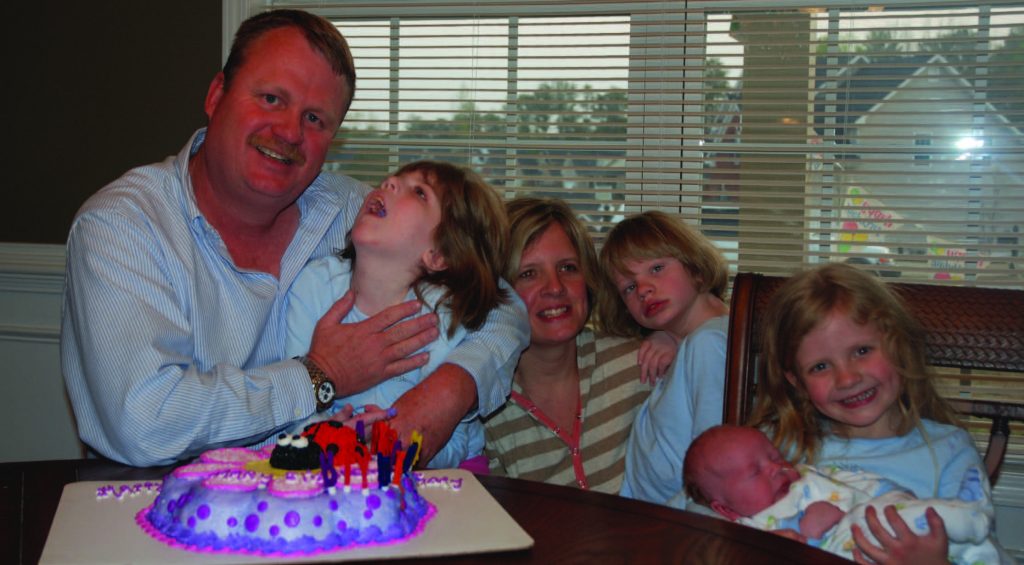
Mike and Kelli had spent much of the previous two decades taking their sick children to doctors’ offices and hospitals, attending medical conferences and seminars, trying experimental drugs and doing everything they could to make their kids better. By 2013, they were running out of options in their search for a medication that would control the debilitating seizures suffered by three of their four children, each born with a severe genetic disease. The years had not been easy for the Hopkins family, but 2014 brought the greatest challenges yet—and the biggest hurt.
Seizures had dominated young Abe’s life almost from the moment he was born until the day he succumbed to the one that took his life at age 6. Just three months later, Mike and Kelli suffered another devastating loss after their firstborn, Mary Elizabeth, began having respiratory issues. “We took her to the ER at Egleston [Children’s Hospital] like we’ve done for 21 years,” Kelli said. “They were giving her a blood transfusion, and her heart just gave out.”
“We knew that Abe and Mary Elizabeth wouldn’t want us to live our days grieving and being sad. As we do things, either apart or as a family, we do it remembering them.”
Medical Marijuana Advocate Mike Hopkins
Fearing that another seizure like the one that had taken Abe could overcome Michala, the grief-stricken family walked through the only open door it could see. Just two weeks after Mary Elizabeth’s death, Mike, Kelli, Michala and Marlee Anne packed up their belongings and moved to Colorado, where they felt they had the best chance of getting help for Michala. That help came in the form of Haleigh’s Hope.
Many of their Georgia friends whose children had similar health issues had already taken up residence in Colorado, where marijuana is legal and where patients taking a substance called Haleigh’s Hope were seeing encouraging results. Botanist Jason Cranford had created a specially formulated medical cannabis oil, or CBD, naming it in honor of Haleigh Cox, of Macon—the first patient to receive it. After beginning treatment, Haleigh’s condition improved dramatically. Her family’s fight for accessibility to the drug became the rallying cry for a growing effort to legalize medical marijuana in Georgia. Haleigh’s Hope continues to live up to its name as other families, including the Hopkins, have seen remarkable improvements in their loved ones after using it.
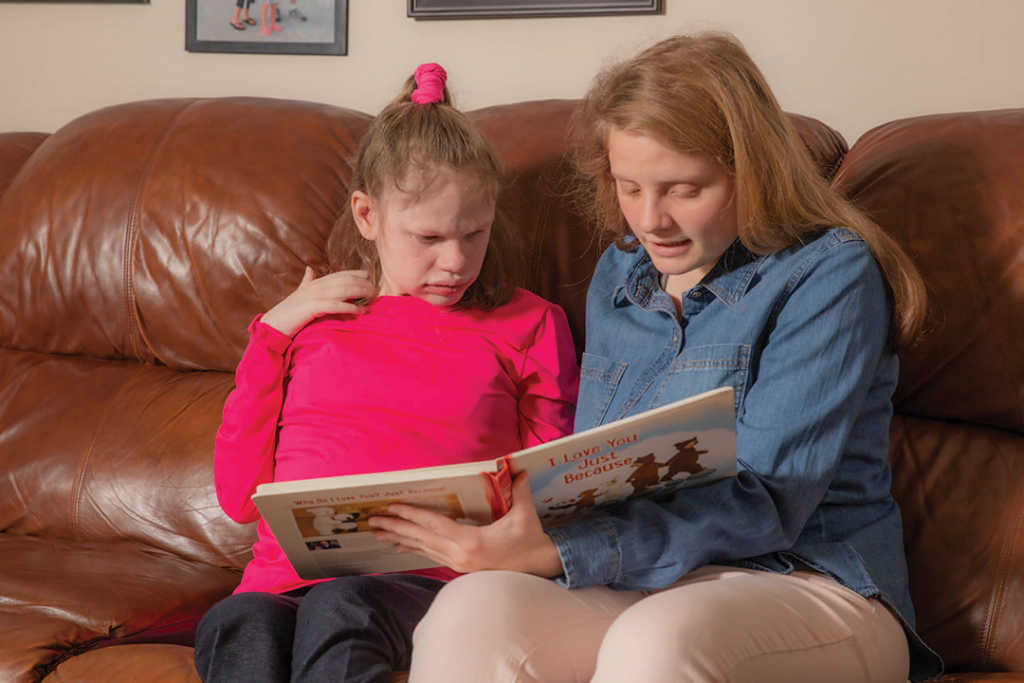
“On Dec. 1, [2014], Michala took her first dose of Hailey’s Hope,” Kelli said. “She hugged us for the first time in 17 years.”
Michala had experienced 461 seizures in the two months prior to starting the medical marijuana and just 42 in the two months immediately following. Since then, the frequency of seizures, as well as their duration and intensity, has lessened even more. “She goes weeks at a time now without a seizure,” Kelli said. “We never saw that before. We never saw a seizure-free day.”
Though the laws necessary to make medical marijuana legal in Georgia have been passed, they remain ineffectual until HB 324 is actually implemented by a board of commissioners that has yet to be appointed. Although the Hopkins returned to Georgia because Michala’s medication required only a minimal amount of THC, there are some families who remain “medical marijuana refugees” in “cannabis-friendly” states and others who wait in Georgia, still with no legal access.
It could be several months or more before the rollout of the HB 324 is complete and the first crop of medical marijuana is grown, processed and placed into the hands of Georgia patients. For those like the Hopkins, the wait can be excruciating and heartbreaking as they watch their children suffer and sometimes die from unabated seizure episodes. Mike lauded as champions state lawmakers like Allen Peake, Micah Gravley and others who have fought to bring medical marijuana within reach, as well as the families who have stepped up to advocate for it. “It’s going to need more champions to help us complete it,” he said.
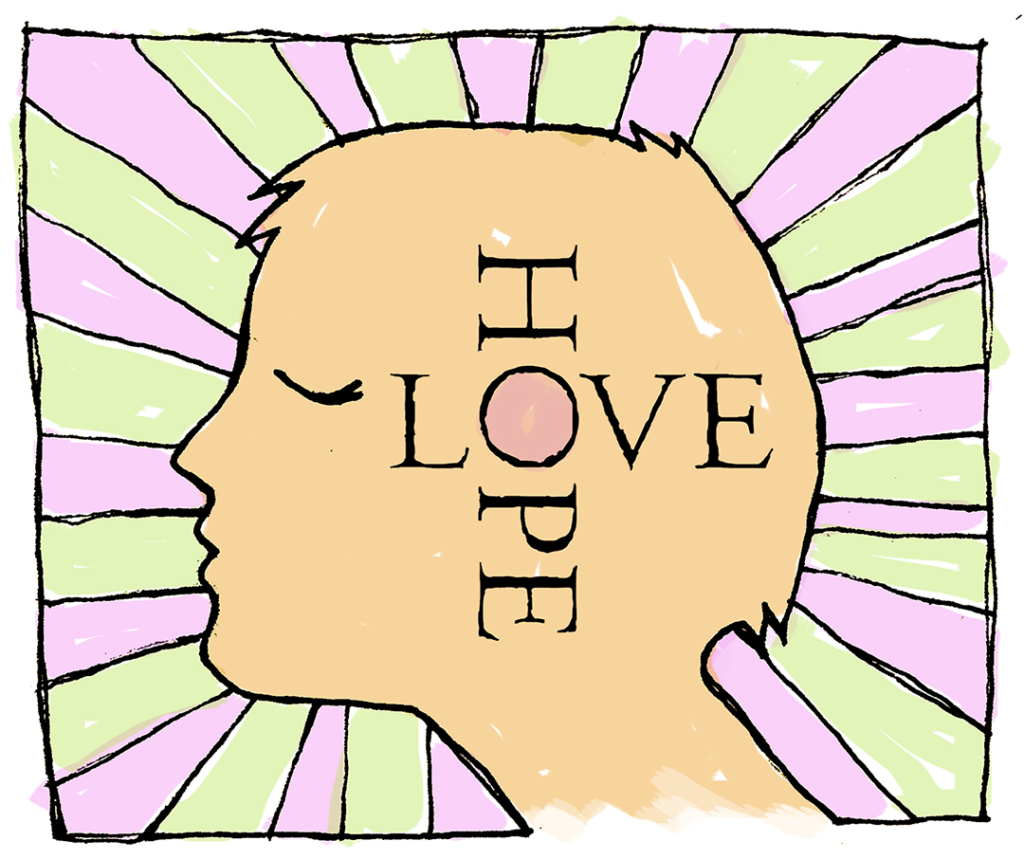
While Mike and Kelli downplay their role, their actions speak for themselves. As a family—three of them in wheelchairs—they used to go to the state capital to testify and give legislators a visual reminder of what was at stake. They continue to be medical marijuana advocates, taking speaking engagements and doing what they can to help make available to others what they have been able to obtain for Michala through Hailey’s Hope. Marlee Anne, their only child born without a genetic disease, is now 17 years old. She has helped to raise over $60,000 for Children’s Healthcare of Atlanta through UGA Miracle and, not surprisingly, has dreams of a career working in medicine or with foster children. For her, the good has far outweighed any bad her family has endured.
“She hugged us for the first time in 17 years.”
Kelli Hopkins
“The thing I’m going to remember most when I’m old is not the struggles but every single time I got to see my siblings smile,” she said, “or all the people in our lives who worked hard so I could have those moments with them.” Though it was difficult for her to leave friends and make the temporary move to Colorado, she has no regrets. “It was definitely worth it to be waking up every morning seeing the smile on Michala’s face or getting to hug her every morning, knowing that we didn’t use to have that before [Hailey’s Hope] and just the consistency of how God showed me love through all three of my siblings.”
The Hopkins have a special family saying now that seeks to capture the unique character of each of their departed children. Etched in stone on a couple of benches in Chimney Park and indelibly written on their hearts, it reads: “For the Love of Abe and the Joy of Mary Elizabeth.” Mike explained the rationale behind the words. “We knew that Abe and Mary Elizabeth wouldn’t want us to live our days grieving and being sad,” he said. “As we do things, either apart or as a family, we do it remembering them.”
Click here to read more stories by David Roten.

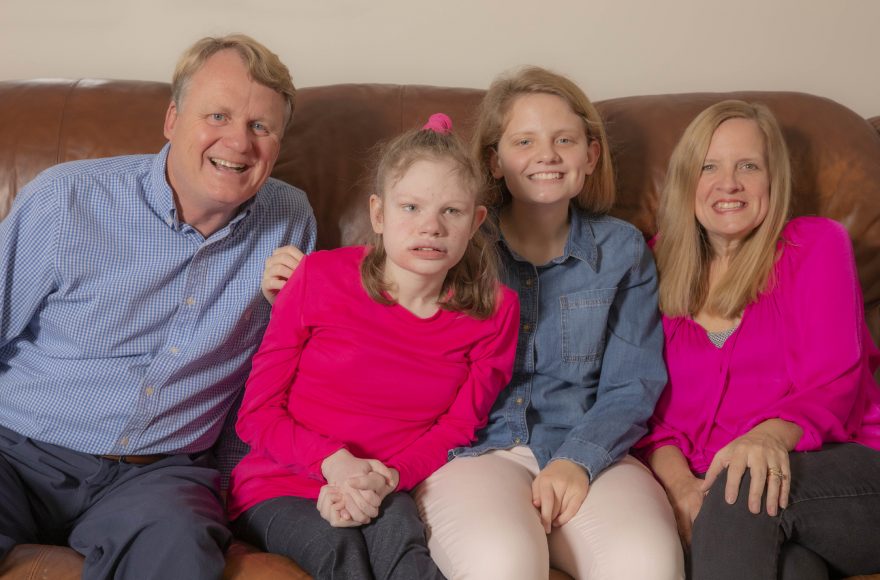
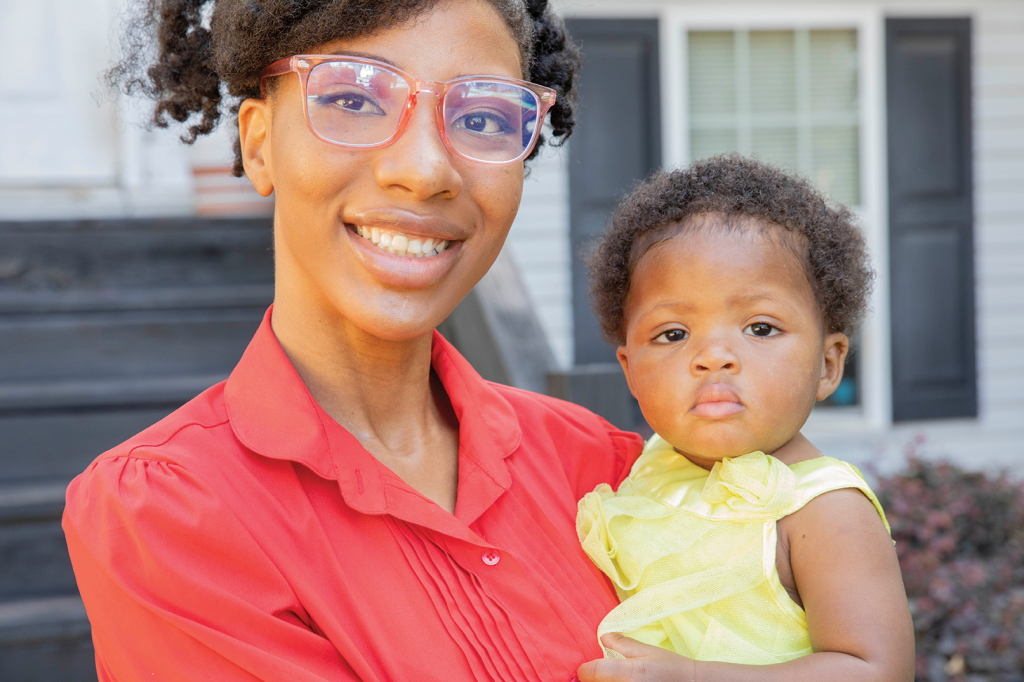


2 comments
Great article.
Love this precious family!